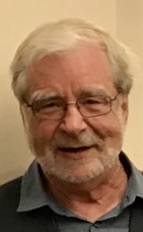How To Protect What We Share
- Marvin T. Brown

- Oct 8, 2020
- 2 min read
Updated: Mar 24, 2023

First lesson from 2020: We cannot protect what we have without protecting what we share.
In Southern Oregon, fires destroyed the small towns of Phoenix and Talent. Both homeowners in new condominiums and immigrant farmworkers in trailer parks lost what that had. They could not protect what they had because they could not protect what they shared. They could not protect their town.
The pandemic offers us a similar learning. Over 210,000 have lost their lives. Many of these deaths were unnecessary. They occurred because we failed to protect what we share: the air we breathe. It’s not a lack of knowledge here, but a lack of care. In the first months, Covid-19 spread through the air like wildfire, and we learned to wear masks, not to protect ourselves, but to protect the air that we share.
Authorities also failed to share medical knowledge and equipment. This failure, however, reveals a deeper failure to protect those who risked their lives to care for others.
We have not only failed to protect our communities and the air; we have also failed to protect our civic discourse. Lies and distortions, the denial of scientific knowledge, boasting and roasting have all diminished the possibility of giving each other the benefit of the doubt and of trusting each other. Civic discourse relies on a shared assumption that words have meanings, sentences make sense, and it is worthwhile to listen. It’s probably true that Hilary Clinton is not our President because of the failure to protect civic discourse. Let’s hope we are smarter this time.
There are really two dimensions of sharing: the sharing of things and relationships of sharing. Before the fires destroyed the towns in Oregon, I would guess that the homeowners and immigrant farmworkers were not aware that they shared their town. Or that they shared the earth. Could the experience of sharing the town’s destruction cause them to explore and develop a sharing relationship?
A sharing relationship does not require that everyone gets the same. That’s not true of parents and children, of artists and audiences, or of teachers and students. Instead, it means that relationships are balanced. They are based on reciprocity, where participants find that sharing benefits everyone.
In a climate of justice, sharing would seem quite reasonable. It would be a relationship based on cooperation, not competition, and on mutual respect, not superior/inferior. It would be the opposite of the divisiveness that Trump’s White House spreads like a deadly disease.
So, what should we do? We could build shelters, but that will only protect us, not the air or the earth; not our cities or public discourse. To protect these things, we need to target what is making them harmful to us and then to eliminate the causes. We will probably not take on these projects, however, until we begin to move from relationships based on competition and exclusion to relationships based on cooperation and sharing. If we see what we share, then why not see each other?

Comments